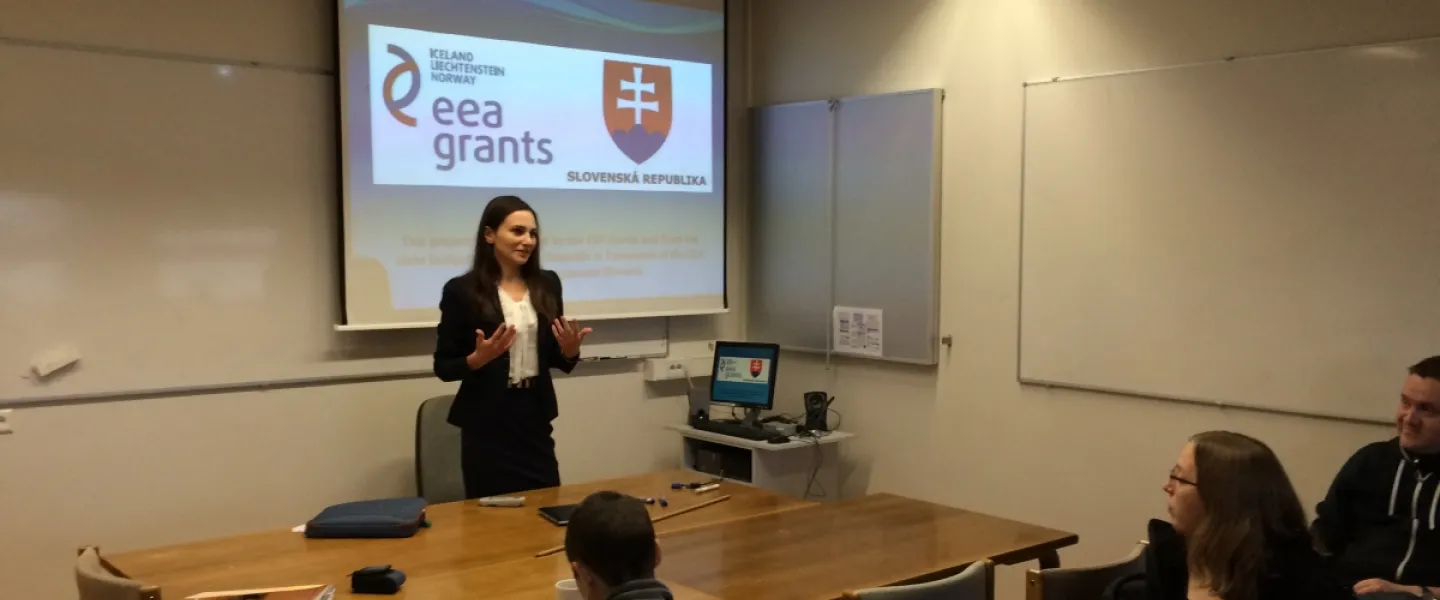
Earlier this year the Faculty of Political Science signed a collaborative contract with the University of Bratislava in Slovakia. The aim of the project is to accelerate the transfer of knowledge and best practices between Slovakia and Iceland in small state studies, to facilitate contributions and exchanges of scientific information between the parties. This objective is primarily to be reached by mobility of highly qualified experts. Thus the Faculty of Political Sciences received two Assistant Professors from the University of Economics in Bratislava; Dasa Adaskova and Eva Janickova last October.
Both these visiting academics participated in faculty activities and Eva Janickova held a lecture in the course The Power Potential of Small States in the European Union,where she discussed Slovakia as a small state in the EU. Dasa Adaskova discussed the Slovak Republic’s participation in regional and international organizations. Janickova and Adaskova agree that the principal benefits of such a visit is “the opportunity to develop personal contacts between participating partner universities and to compare the systems of education in Slovakia and Iceland, as well as the exchange of information, opinions and Slovak and Icelandic perspectives on the small states concept.” They observed that the main difference between the University of Bratislava and the University of Iceland lies in how “the teachers from the Faculty of Political Science are more active in developing deeper relationships with their students through different interesting activities. I think that it is a good way to bring students closer to teachers in order to promote students’ interest in studying at the university,” says Adaskova.
Even though Slovakia and Iceland are both considered small states they are quite different. “The main differences come from the historical background of both states and their respective geopolitical positions. Slovakia as a post-communist country could not decide independently on its foreign policy orientation until after the collapse of the communist non-democratic government in 1989, and the establishment of an independent state in 1993,” says Adaskova. The Slovak geopolitical position was the main factor for the orientation of its foreign policy towards the integration into the EU and NATO to secure political relations, economic growth and security. “On the other hand, Iceland gained independence in 1944 and started to form its international position earlier through political, economic and security relations oriented towards Western European countries and the US. Its unique strategic position in the Northern Atlantic Ocean gives Iceland the opportunity to act more independently in international relations,” she adds.
The project will benefit students as well. They will have access to different points-of-view from foreign experts and increase their intercultural awareness. Furthermore, the faculty’s academic staff will create academic relations with their peers in small states studies with a varied academic background. Three lecturers from the Faculty of Political Science with thus visit the University of Economics in Bratislava this fall.
The project is co-financed by the EEA grants and from the state budget of the Slovak Republic in framework of the EEA Scholarship Programme Slovakia.